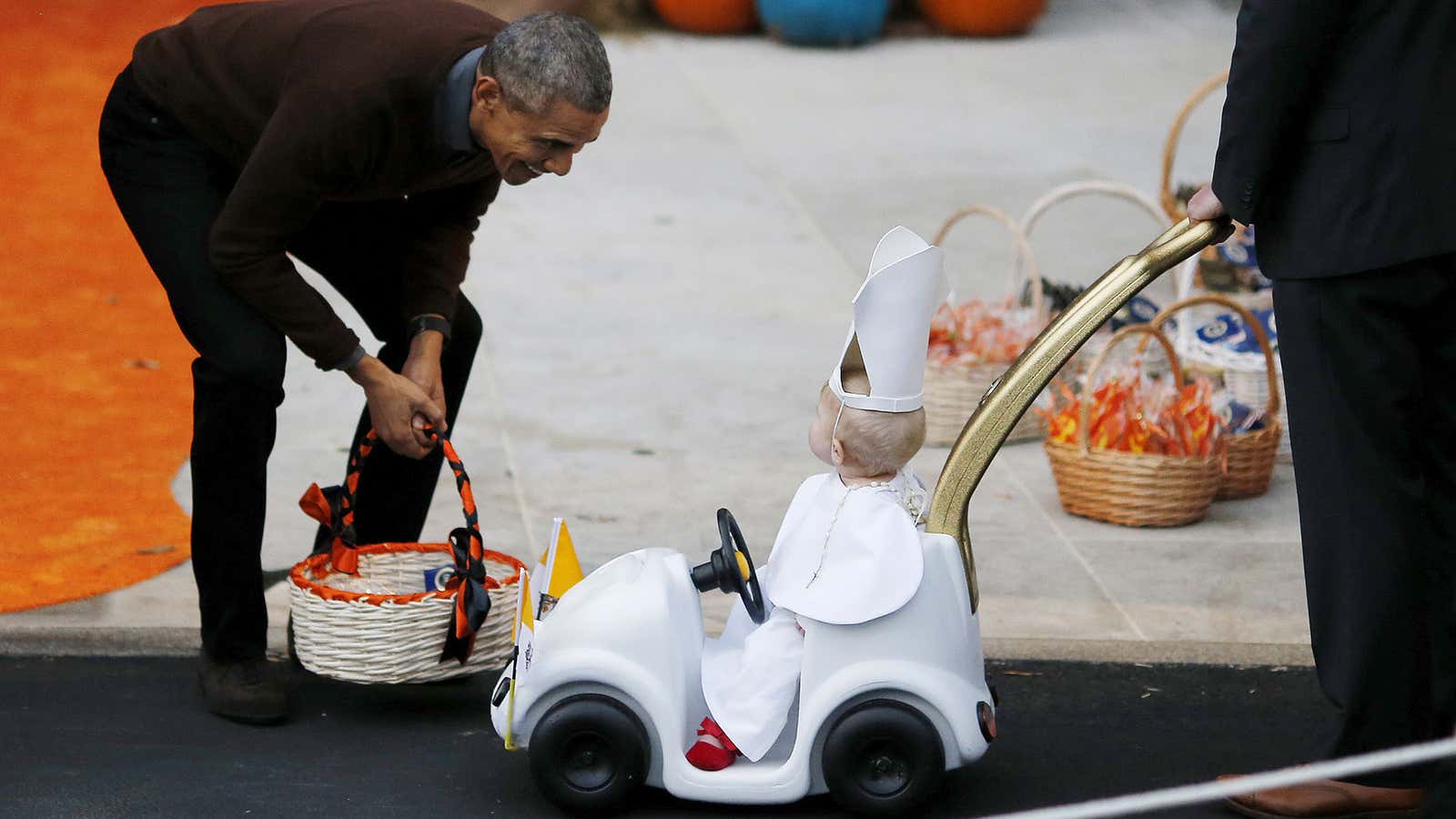Scientific studies on religion and human behavior are often hot tickets to morality plays, greedily gobbled up by people who extoll the benefits of religious training or belief, and by those who advocate a less dogmatic approach to life. Each side tries to win the moral high ground. And if they weren’t far enough apart before, social media deftly does the job now of polarizing the camps.
The latest example of this is a study that claims that religious children—Muslim and Christian children, specifically—are more selfish than non-religious children. The new research was shown no shortage of media attention. But the bold conclusions drawn from it are really quite overblown.
What did the researchers actually do?
Jean Decety at the University of Chicago and his colleagues recruited 1,170 families from Canada, China, Jordan, South Africa, Turkey, and the US. For each family, they included only one child—between the ages of five and 12—in the study. In all, 510 described themselves as Muslim, 280 as Christians, and 323 as non-religious. Although they also recruited children who identified with other religions (mainly Judaism, Hinduism, and Buddhism), the final results excluded their answers because they were too few in number.
After a survey of household habits, the children were asked to play a game that measures altruism. Each child was shown 30 stickers and told that they could take any 10. Once they had made their choice, they were told that some of their friends at school wouldn’t be able to take part in the game. But, if they wanted, they could give some of their stickers to them. The number of stickers surrendered was a proxy for how altruistic the children were.
The results show that the non-religious children gave away, on average, 4.1 stickers. In comparison, Muslim children gave away 3.2 stickers and Christians 3.3. Based on statistical analysis, Decety and his colleagues conclude that religiosity was inversely correlated with generosity.
How plausible are the results?
The most interesting aspect of the study is that the authors chose to ask children, instead of the usual psychology-study subject of choice: undergraduate university students. Children generally are yet to form firm conclusions about abstract concepts such as religion and morality. The results then are either a hint of how these concepts will firm up for them as they grow, or are a reflection of the way parents and teachers they interact with behave in daily life.
Also, the results are in stark contrast to what the children’s own parents predicted would have been the case. Religious parents expected their children to be more altruistic than non-religious parents. That perhaps says, not surprisingly, that what religions preach is not always practiced.
For the subset of Muslim and Christian children in a handful countries, the results are a plausible indication of a broader trend. Any judgement beyond that, however, would be unfair.
So what is the takeaway?
Even in the face of this research, it would be incorrect to draw a definitive conclusion that religion makes children more selfish. The sample size is too small for that. And, if we step back from the study and look at other studies asking a similar question, the evidence appears to be mixed. For instance, a 2014 study concluded that religion has no marked difference on people’s moral choices.
That does not mean that we must disregard the new study. Its methods and conclusions have academic importance. But the real takeaway is that the connection between religion and morality is a lot more tenuous than many of us have come to believe.
